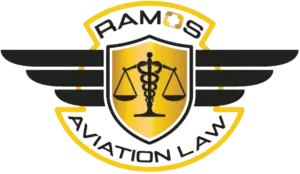The Pilot's Guide to FAA MedXPress
For every pilot, from the aspiring student to the seasoned airline captain, an FAA medical certificate is a non-negotiable part of staying flight-ready. At the heart of this process lies the FAA’s MedXPress system, a secure online portal where pilots complete and submit their medical application (Form 8500-8) before meeting with an Aviation Medical Examiner (AME).
While it may appear straightforward, understanding what to do before, during, and after submission can help prevent delays, denials, or unnecessary FAA scrutiny. This guide walks you through every stage with practical, pilot-tested advice.
BEFORE SUBMISSION Preparation is Everything
BEFORE SUBMISSION: Preparation is Everything
- Know Which Medical Certificate You Need
- First Class: Required for airline transport pilots
- Second Class: Required for commercial pilots
- Third Class: Required for private or recreational pilots
Each class has its own medical standards. Knowing which one you need will help you anticipate what documentation and testing may be required.
- Get Familiar with Your Medical History
MedXPress asks for a detailed personal medical history. You must disclose:
- Current and past medical conditions or diagnoses
- All current medications (prescription and over-the-counter)
- Hospitalizations, surgeries, or significant treatments
- Visits to a medical professional within the past 3 years
- Alcohol or drug-related incidents
- Legal history, including arrests, convictions, or license suspensions
- Rejections for military service, insurance, or disability benefits
Tip: Gather supporting documents like physician notes, discharge summaries, and lab results ahead of time.
- Consider a Pre-Submission AME Consultation
If you have complex medical issues (e.g., mental health, cardiovascular disease, DUI), speak with an AME before filling out the form. They can help you navigate documentation requirements and prepare you for potential deferrals.
Alternatively, the aviation attorneys at Ramos Law offer confidential pre-submission reviews under attorney-client privilege. Our team, which includes licensed pilots and medical professionals, can evaluate your situation and provide strategic guidance before you enter anything into MedXPress.
- Physically Prepare
Make sure you’re in good shape for the exam:
- Bring glasses/hearing aids if you use them
- Keep chronic conditions like blood pressure well-managed
- Avoid excessive caffeine before the exam
- Create Your MedXPress Account
Visit medxpress.faa.gov and register with a valid email. You must complete and submit Form 8500-8 electronically before your AME appointment.
DURING SUBMISSION Honesty & Accuracy Are Critical
- Be Truthful and Thorough
Inconsistencies or omissions can lead to delays or FAA investigation. Ensure that:
- All past and current conditions are disclosed
- You use Section 18x (“Other”) to report any issues not specifically listed
- Submit and Save Your Confirmation Number
After submitting, you’ll receive a confirmation number. Save it in multiple formats—your AME needs it to retrieve your application. - Print a Copy
The FAA does not allow downloads after submission. Print and save a copy for your records and bring one to your AME. - Book Your AME Appointment Immediately
You have 60 days from submission to complete your physical exam. If you miss this window, your application will be deleted, and you’ll have to start over. - Prepare for Exam Day
Bring the following to your AME appointment:
- MedXPress confirmation number
- Government-issued photo ID
- All supporting medical documents
Your AME will review your form, take vitals, assess vision and hearing, collect a urine sample for drug testing, and may conduct additional tests (like an EKG for First Class).
AFTER SUBMISSION What Comes Next?
- Three Possible Outcomes
- Issued: You meet all standards; your certificate is issued immediately.
- Deferred: The AME forwards your application to the FAA for further review. You may need to submit additional documentation.
- Denied: Typically only caused by explicitly disqualifying conditions such as continuing use of certain medications.
- Track Your Application
If deferred, use the FAA’s systems to monitor the status. Be ready to respond quickly to any requests. - Keep Detailed Records
Maintain copies of all submitted forms, correspondence with the FAA, and any physician letters. This is essential for responding to potential requests for further information as well as renewals and appeals.
Bonus Tip Use the MedXPress Simulator (by Ramos Law Aviation Division)
Want to practice before committing? The MedXPress Simulator, developed by Ramos Law Aviation Division, allows you to complete a mock FAA medical form under attorney-client privilege.
Benefits include:
- A realistic walkthrough of the FAA MedXPress experience
- Optional feedback from aviation attorneys
- A saved version of your responses (something the real FAA system doesn’t offer)
Use promo code SAVE5 to waive the simulator fee.
By preparing thoroughly, filling out the MedXPress form honestly, and staying proactive after your AME visit, you’ll reduce the risk of delays and be back in the skies where you belong.
Fly safe!
CONTACT RAMOS LAW
Don’t let avoidable delays ground your flight plan reach out to Ramos Law’s aviation legal team today
Experts in Aviation Law
Pilot Certificate Defense
FAA Medical Denial
Aircraft Crashes
FAA DUI Reporting
Civil Penalties
NTSB Appeals
And More!
Experts in Aviation Law
- Pilot Certificate Defense
- FAA Medical Denial
- Aircraft Crashes
- FAA DUI Reporting
- Civil Penalties
- NTSB Appeals
- And More!


